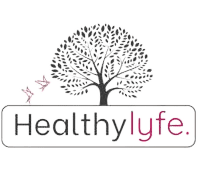Discover the essentials of balanced nutrition, its benefits, and simple tips to lead a healthier lifestyle. Eat smarter, live better!
Introduction
Eating healthily is more than just a buzzword; it’s the cornerstone of a vibrant life. A balanced diet fuels your body, sharpens your mind, and provides long-term benefits that ripple through every aspect of your life. In this guide, we’ll break down balanced nutrition into digestible bites to help you eat smarter, not harder, and explore how to overcome common challenges along the way.
What is Healthy Eating?
Healthy eating goes beyond calorie counting or eliminating food groups. It’s about nourishing your body with the right nutrients, in the right amounts, to support overall health and well-being. A balanced diet ensures you get everything you need to thrive.
Defining Balanced Nutrition
Balanced nutrition is like assembling a puzzle, with each macronutrient playing a vital role. When all the pieces come together—carbohydrates, proteins, and fats—your body thrives.
- Proteins: Essential for muscle repair and overall growth.
- Carbohydrates: Your body’s primary energy source.
- Fats: Key for hormone production and cell structure.
It’s equally important to include vitamins, minerals, and water for optimal health.
The Core Components of Healthy Eating {1}
Fruits and Vegetables
Fruits and vegetables form the foundation of a healthy diet. They’re packed with essential vitamins, minerals, antioxidants, and fiber to keep your body functioning optimally.
Importance of Colors on Your Plate
The different colors of fruits and veggies signify unique nutrients. For example:
- Red foods (like tomatoes and strawberries) are rich in lycopene and anthocyanins, which support heart health.
- Orange foods (like carrots and sweet potatoes) are high in beta-carotene for healthy vision.
- Green foods (like spinach and broccoli) provide iron, folate, and vitamin K.
Whole Grains
Whole grains, like brown rice, quinoa, and oats, provide sustained energy and are rich in fiber, which aids digestion and helps you feel full longer. They’re also great sources of B vitamins and trace minerals.
Proteins: Plant-Based vs. Animal-Based
Both plant-based proteins (like lentils, tofu, and chickpeas) and animal-based proteins (like chicken, eggs, and fish) have their benefits. The key is to strike a balance and opt for lean, high-quality sources.
- Plant-Based Proteins: Rich in fiber and lower in saturated fats.
- Animal-Based Proteins: Provide complete proteins with all essential amino acids.
Healthy Fats
Not all fats are created equal. Healthy fats, such as those found in avocados, nuts, seeds, and olive oil, support brain health, reduce inflammation, and promote heart health.
Benefits of Healthy Eating
Improved Physical Health
Eating a balanced diet supports muscle growth, strengthens bones, and helps maintain a healthy weight. It also improves skin, hair, and overall energy levels.
Enhanced Mental Clarity
Healthy eating nourishes your brain, enhancing focus, memory, and mood. Foods rich in omega-3 fatty acids, like salmon and walnuts, are particularly beneficial for cognitive function.
Long-Term Disease Prevention
A nutritious diet lowers the risk of chronic conditions such as diabetes, heart disease, and certain cancers. High-fiber foods like oats and beans can help regulate blood sugar, while antioxidants in berries and green tea combat free radicals.
Boosted Energy Levels
Nutritious foods provide your body with the fuel it needs for sustained energy throughout the day. Whole grains and lean proteins keep you energized and prevent energy crashes.
The Challenges of Maintaining a Healthy Diet
Common Myths About Nutrition
Myths like “carbs are bad” or “fat makes you fat” can mislead people. The truth is, your body needs a mix of nutrients to function properly. Carbs are essential for energy, and healthy fats play a vital role in hormone production.
Balancing Cost and Quality
Eating healthy doesn’t have to break the bank. Focus on seasonal, locally sourced foods, and plan meals to reduce waste. Beans, lentils, and frozen fruits are nutritious and budget-friendly options.
Overcoming Social and Cultural Barriers
Cultural traditions and social pressures can sometimes conflict with healthy eating. Find ways to adapt your diet without compromising on flavor or tradition. For example, try making traditional dishes with healthier substitutions.
Tips for Starting and Sustaining Healthy Eating Habits
Meal Planning and Preparation
Planning meals ahead of time ensures you always have nutritious options available, saving time and reducing stress. Batch cooking and freezing meals are excellent strategies for busy weeks.
Smart Grocery Shopping
Learn to read labels, shop the perimeter of the store for fresh foods, and avoid marketing traps. Choose whole, minimally processed foods whenever possible.
Moderation and Mindful Eating
Enjoying treats in moderation and practicing mindful eating—such as chewing slowly and savoring flavors—can improve your relationship with food and prevent overeating.
Staying Hydrated
Water is the unsung hero of nutrition. It supports digestion, regulates body temperature, and keeps your skin glowing. Aim for at least 8 glasses of water a day, and more if you’re active.
The Role of Supplements in a Balanced Diet
When Are Supplements Necessary?
Supplements can fill nutritional gaps, especially for individuals with specific dietary restrictions or medical conditions. For example:
- Vegans may benefit from B12 supplements.
- Pregnant women need folic acid to support fetal development.
Potential Risks of Over-Supplementation
Overdoing supplements can lead to toxicity or imbalances. For example, excessive vitamin A can harm the liver. Always consult a healthcare professional before starting any supplement regimen.
The Environmental Impact of Your Food Choices
Sustainable Eating Practices
Opt for locally grown produce, reduce meat consumption, and support sustainable farming practices to lower your environmental footprint. Eating plant-based meals a few times a week can make a big difference.
Reducing Food Waste
Simple steps like meal planning, storing food properly, and composting can significantly reduce waste. Use leftovers creatively to avoid throwing away perfectly good food.
Advantages of Healthy Eating
Economic Benefits
Investing in wholesome foods reduces long-term healthcare costs by preventing chronic diseases. Preparing meals at home is often cheaper than eating out.
Social and Family Well-Being
Preparing and sharing nutritious meals fosters stronger family bonds and encourages healthier habits for future generations. Cooking together can also be a fun and educational activity.
Disadvantages of Healthy Eating
Time Commitment
Planning, shopping, and cooking meals from scratch can take more time, but it’s a worthwhile investment in your health. Start with small changes to ease the transition.
Initial Costs of Transitioning to Healthy Foods
While some healthy foods may be costlier upfront, the long-term benefits outweigh the initial expenses. Look for sales and buy in bulk to save money.
Psychological Pressures and Diet Culture
Unrealistic expectations and diet culture can make healthy eating feel restrictive. Focus on balance and what works for you. Remember, it’s about progress, not perfection.
Case Studies: Real-Life Success Stories
Transformative Stories from Healthy Eaters
People who adopted balanced diets often report improved energy, mood, and overall health. For example, one individual lost 50 pounds and reversed their prediabetes by following a whole-food, plant-based diet.
Lessons Learned Along the Way
Common lessons include the importance of preparation, staying flexible, and forgiving occasional slip-ups. Healthy eating is a journey, not a destination.
Conclusion
Healthy eating doesn’t have to be overwhelming. Start small, make gradual changes, and remember—progress, not perfection, is the goal. By prioritizing balanced nutrition, you’re investing in a healthier, happier future.
FAQs
What is healthy eating?
Healthy eating involves consuming a variety of nutrient-dense foods in the right proportions to support overall health and well-being.
What are the foundations of balanced nutrition?
Balanced nutrition includes a mix of carbohydrates, proteins, fats, vitamins, minerals, and water.
Why is healthy eating important?
It improves physical health, boosts energy levels, enhances mental clarity, and reduces the risk of chronic diseases.
What does a balanced meal look like?
A balanced meal includes lean proteins, whole grains, a variety of vegetables, healthy fats, and minimal processed foods.
How many meals should I eat in a day?
Most people benefit from three balanced meals and one or two healthy snacks each day.
How does healthy eating impact mental health?
A balanced diet improves mood, focus, and memory by providing essential nutrients for brain function.
What role does healthy eating play in energy levels?
Yes, focusing on whole, nutrient-dense foods and portion control can support healthy weight loss.
Does healthy eating reduce the risk of chronic diseases?
Yes, it lowers the risk of diabetes, heart disease, and certain cancers.
What role does healthy eating play in energy levels?
Nutritious meals provide sustained energy and prevent crashes caused by processed foods.
How does healthy eating benefit skin and hair?
Nutrients like vitamin C, E, and omega-3 fatty acids promote healthy skin and hair.
Is healthy eating expensive?
Not necessarily. Buying seasonal produce, planning meals, and avoiding processed foods can save money.
How can I eat healthy with a busy schedule?
Meal prep, batch cooking, and opting for simple recipes can make healthy eating easier.
What are common myths about healthy eating?
Myths include “carbs are bad” and “all fats cause weight gain.” Both are untrue in the context of balanced nutrition.
How do I handle cravings for unhealthy foods?
Cravings can be managed by eating balanced meals, staying hydrated, and enjoying occasional treats in moderation.
What if I don’t like vegetables?
Try different cooking methods, spices, and recipes to make vegetables more appealing.
How can I start eating healthier?
Begin by adding more fruits and vegetables, reducing processed foods, and drinking more water.
How do I read food labels?
Focus on serving size, calories, added sugars, and nutrient content like fiber and protein.
What is mindful eating?
Mindful eating involves paying attention to hunger cues, eating slowly, and savoring food without distractions.
What are good snacks for healthy eating?
Fruits, nuts, Greek yogurt, and hummus with veggies make great healthy snacks.
How can I make healthy meals more flavorful?
Use herbs, spices, and healthy oils like olive oil to enhance flavor without added calories.
Do I need supplements for a balanced diet?
Not always. A varied diet usually provides sufficient nutrients, but supplements can help in certain cases.
Are multivitamins necessary?
Only if you have gaps in your diet that cannot be addressed with food.
What are the risks of supplements?
Over-supplementing can lead to toxicity or nutrient imbalances.
What is a Mediterranean diet?
It’s a diet rich in fruits, vegetables, whole grains, healthy fats, and lean proteins.
What is intermittent fasting, and is it healthy?
Intermittent fasting involves scheduled eating windows and can support weight loss if done properly.
By healthylyfe


